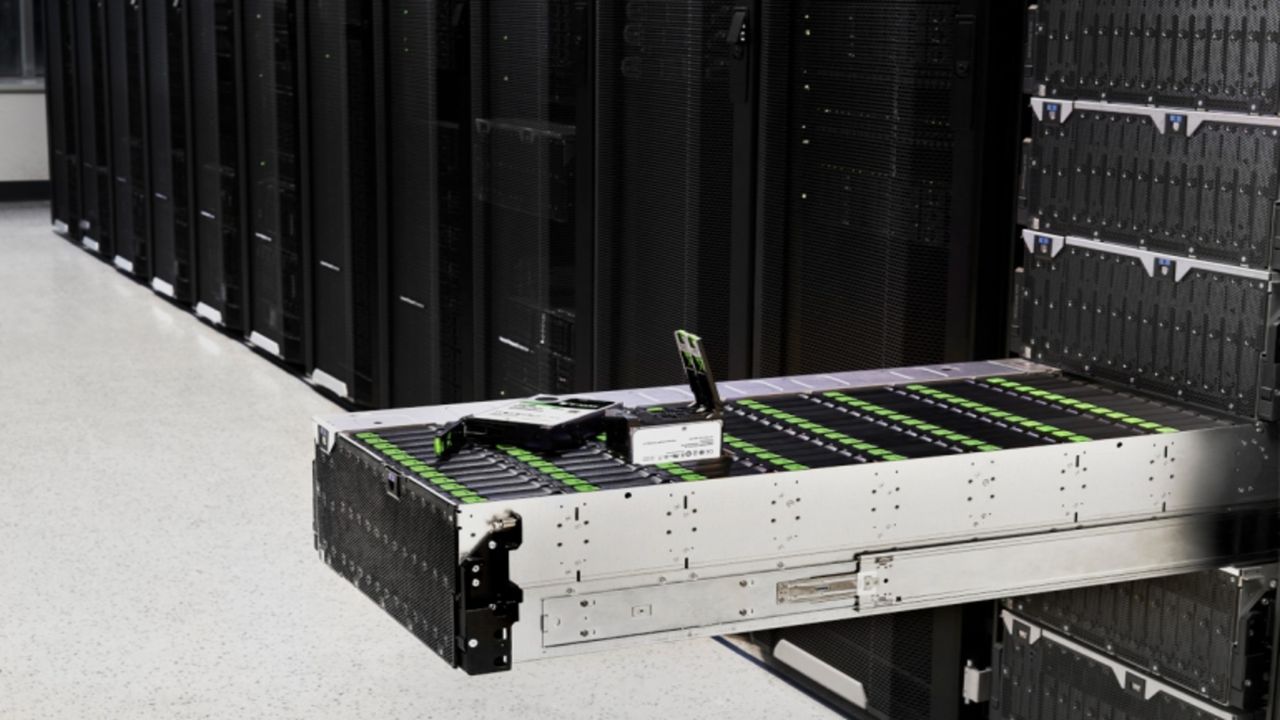
- Seagate Exos 4U100 Delivers Multi-Petabyte Capacity for Demanding AI and ML Workflows
- HAMR technology boosts the long-term storage density and durability of the Exos 4U100
- Edge environments benefit from the Exos 4U100’s ability to ingest continuous data
Seagate has introduced its new Exos 4U100 and 4U74 JBOD systems, designed to handle the growing data demands of artificial intelligence and machine learning.
The flagship Exos 4U100 enclosure offers a maximum capacity of 3.2 petabytes, combining density and performance aimed at both data centers and edge environments.
Seagate’s Mozaic HAMR technology is at the core of this release, designed to support high-volume data throughput while reducing power consumption.
Innovation built for the edge
Seagate claims its HAMR technology is capable of keeping pace with the scale and speed required in AI-driven workflows.
The company presents the Exos 4U100 as a solution for environments where data is generated and processed outside of central cloud systems.
The system targets AI workloads that rely on fast updates and local analysis and supports model checkpointing, long-term data retention, and continuous ingestion.
Seagate claims the Exos 4U100 achieves 70% more efficient cooling and consumes 30% less power than the previous generation, with flexibility for SAS and SATA configurations.
However, as with all dense enclosures, efficiency claims will largely depend on real-world workloads and how well systems maintain stability under sustained data operations.
SSDs dominate high-speed caching and flash drives are still useful for mobility; However, HDD-based systems like the Exos 4U100 continue to offer unmatched capacity for long-term storage at a lower cost.
For AI workflows, where data is constantly generated, trained, and archived, these hybrid approaches are becoming critical.
The challenge lies not in raw capacity but in maintaining efficiency and security across multiple storage layers.
Seagate includes secure boot, Redfish management, and its proprietary Seagate Secure certification to protect against unauthorized access.
These safeguards are essential as data sovereignty regulations and privacy expectations evolve.
However, while security is emphasized, the question remains whether such large enclosures can remain manageable in rapidly changing AI environments.
The Exos 4U100 represents Seagate’s confidence in the continued relevance of mechanical storage even as SSD and flash technologies advance.
“The Seagate Exos 4U100 JBOD ushers in a bold new chapter in edge storage innovation, designed to meet the changing demands of data creation, storage, replication and analytics at the edge,” said Melyssa Banda, senior vice president of storage and edge services at Seagate.
Follow TechRadar on Google News and add us as a preferred source to receive news, reviews and opinions from our experts in your feeds. Be sure to click the Follow button!
And of course you can also follow TechRadar on TikTok for news, reviews, unboxings in video form and receive regular updates from us on WhatsApp also.



